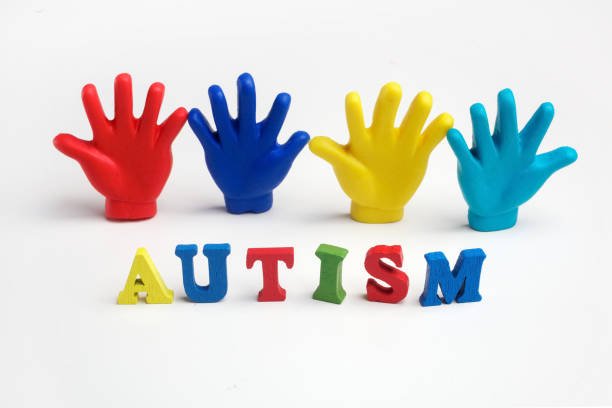Autism Spectrum Disorder (ASD)

What is ASD?
Autism spectrum disorder (ASD) is a developmental disorder that affects communication and behavior. Although autism can be diagnosed at any age, it is described as a “developmental disorder” because symptoms generally appear in the first two years of life.
People with ASD have:
◆Difficulty with communication and interaction with other people
◆Restricted interests and repetitive behaviors
◆Symptoms that affect the person’s ability to function in school, work, and other areas of life
Autism is known as a “spectrum” disorder because there is wide variation in the type
and severity of symptoms people experience.
ASD occurs in all ethnic, racial, and economic groups. Although ASD can be a lifelong disorder, treatments and services can improve a person’s symptoms and ability to function.
Signs and Symptoms
People with ASD have difficulty with social communication and interaction and have restricted interests and repetitive behaviors.
Social communication/interaction behaviors may include:
◆Making little or inconsistent eye contact
◆ Having a tendency not to look at or listen to people
◆Rarely sharing enjoyment of objects or activities by pointing at or showing things to others
◆Failing to, or being slow to, respond to someone calling their name or to other verbal attempts to gain attention
◆Having difficulties with the back and forth of conversation
◆Often talking at length about a favorite subject without noticing that others are not interested or without giving others a chance to respond
◆Having facial expressions, movements, and gestures that do not match what is being said
◆Having an unusual tone of voice that may sound sing-song or flat and robot-like
◆Having trouble understanding another person’s point of view or being unable to predict or understand other people’s actions
Restrictive/repetitive behaviors may include:
◆Repeating certain behaviors or having unusual behaviors, such as repeating words or phrases (a behavior called echolalia)
◆Having a lasting intense interest in certain topics, such as numbers, details, or facts
◆Having overly focused interests, such as with moving objects or with parts of objects
◆Getting upset by slight changes in a routine
◆Being more sensitive or less sensitive than other people to sensory input, such as light, noise, clothing, or temperature
People with ASD may also experience sleep problems and irritability.
Although people with ASD experience many challenges, they may also have many strengths, including:
◆Being able to learn things in detail and remember information for long periods of time
◆ Being strong visual and auditory learners
◆Excelling in math, science, music, or art causes and risk factors
The exact causes of ASD are still unknown but studies suggest that genes can act together with influences from the environment to affect development in ways that lead to ASD.
How is ASD diagnosed?
Doctors diagnose ASD by looking at a person’s behavior and development. ASD can usually be reliably diagnosed by the age of two. It is important for those with concerns to seek out an assessment as soon as possible so that a diagnosis can be made, and treatment can begin.
Children at high risk include those who have a family member with ASD, have some ASD behaviors, have older parents, have certain genetic conditions, or were born at very low birth weight.
Treatment
Treatment for ASD should begin as soon as possible after diagnosis. Early treatment for ASD is important because proper care can reduce individuals’ difficulties while helping them learn new skills and make the most of their strengths.
Medication
A doctor may use medication to treat some symptoms that are common with ASD. With medication, a person with ASD may have fewer problems with:
⊲ Irritability
⊲ Aggression
⊲ Repetitive behavior
⊲ Hyperactivity
⊲ Attention problems
⊲ Anxiety and depression
There is no single best treatment for ASD as the ASD person may face a wide range of issues. So, Working closely with a psychiatrist is an important part of finding the right treatment.
Book Appointment
Our Treatment
- Anger management
- Stress Management
- de-addiction
- Obsessive–compulsive disorder (OCD)
- Autism Spectrum Disorder (ASD)
- Personality Disorder
- Depression
- Anxiety Disorder
- Sleep Disorder
- Sexual Disorders
- Bipolar Disorders
- Schizophrenia
- Child Guidance & Counselling
- Attention Deficit Hyperactivity Disorder
- Couples Therapy
- Psychotherapy & Counselling
- Alzheimer’s Disease
